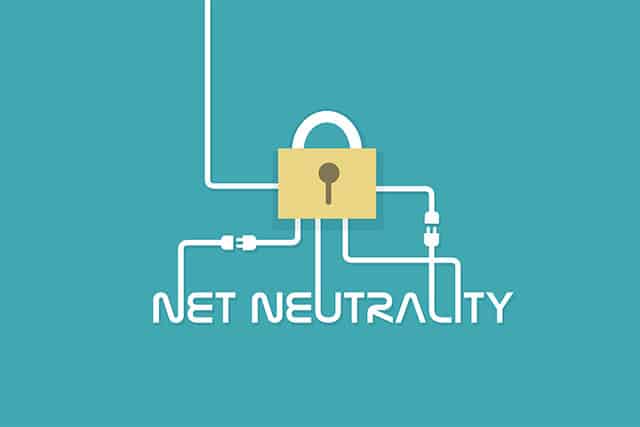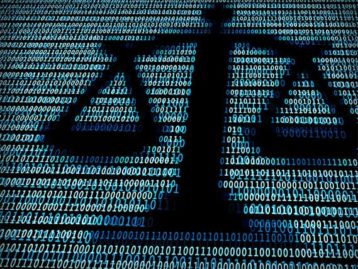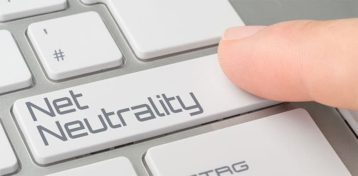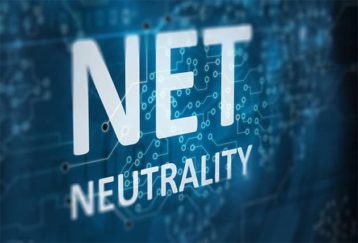Ajit Pai will soon leave his position as the chairman of the U.S. Federal Communications Commission.
Pai first announced his exit on Nov. 30, 2020, saying that he will officially leave the commission on Jan. 20, 2021.
As for Pai’s legacy: The policies he approved raised internet prices all over the country and brought an end to net neutrality, a regulatory framework that requires internet service providers (ISPs) to prioritize all network traffic the same, regardless of its source, and ensure equal access and pricing to all consumers.

Net neutrality supporters are hopeful that Pai’s exit from the FCC can only mean a return to net neutrality and a more open internet in the future. Still, this outcome hinges on the position of the FCC’s next chairman.
With Pai gone, U.S. President-elect Joe Biden will have the opportunity to appoint a new chairman of the FCC when he moves into office in January.

Although Pai effectively erased net neutrality under his tenure as FCC chairman, he did not address the issue in his resignation letter. Pai mentioned that under his chairmanship, the FCC never backed off from making difficult decisions and, as a result, the country now has stronger, faster and more expansive communications networks. Moreover, Pai wrote that the FCC has worked to close the digital divide, spur innovation and market competition, protect consumers and improve public safety.
Of course, the truth is somewhere in the middle. This year, the FCC released its 2020 Broadband Deployment Report, stating that around 22% of rural Americans don’t have access to fast internet speeds (in excess of 25 Mbps), while the remaining 78% of people in rural areas are covered. The 25 Mbps measure is also the speed experts recommend for people who want to work from home and/or educate their children.
However, the FCC’s earlier numbers from the 2019 Broadband Deployment Report have been disputed.
A report from ISP data aggregator BroadbandNow used data from FCC’s own records and found that around 42 million Americans still did not have a broadband internet connection. That’s twice the amount estimated by the FCC in its 2019 report, which found that only 21.3 million Americans lack broadband internet access.
During the administration of former U.S. President Barack Obama, the FCC reclassified ISPs as common carriers under Title II of the Communications Act. As a result, the FCC gained more authority over ISPs and could prevent them from discriminating against certain internet traffic. As such, ISPs had no way to charge customers more money for the type of websites, services and content they were accessing. It also barred ISPs from restricting free access to websites in particular categories.

But Pai, who was appointed FCC chairman by President Donald Trump in 2017, argued that such “heavy-handed regulations” were counterproductive for a competitive business climate and disincentivized companies to invest in innovation. The FCC ultimately voted to repeal net neutrality regulations in December of 2017.
However, with Pai’s departure and the FCC shifting out of a Republican-led chairmanship, net neutrality supporters expect a new beginning to the fight against the cancellation of net neutrality rules in the U.S. Fight for the Future, a digital rights advocacy group, uploaded an official statement on its website which read that it considered Pai the most unpopular FCC chairman in history. The statement further criticized Pai’s tenure and emphasized the urgent need to repair the damage caused by Pai’s policies and protect all citizens from ISP abuses, particularly during the COVID-19 pandemic.
Pai’s departure and Simington’s arrival signal significant leadership changes at the FCC, in timing with the onset of Biden’s presidency. Currently, Biden hasn’t made any statements regarding Pai’s replacement.
But some reports say that Biden’s transition team is leaning towards Mignon Clyburn, who had served at the FCC under the Obama administration. Jessica Rosenworcel, a current FCC member, is also under consideration for the chairman position. Both candidates are pro-net neutrality.
According to 2018 poll data from Statista, a bipartisan majority of U.S. registered voters want net neutrality back as it was before Pai became the chairman of the FCC.
From the other side of the argument, people who support repealing net neutrality laws in the country further fear that Pai’s exit could have disastrous effects on internet service providers and various adjacent industries.

Regardless, Pai’s exit may also turn the tide against internet service providers and towards consumers, who have had to pay more for the same performance for the past several years.
Comcast, the U.S.’s largest ISP, recently announced a $3 price increase to its internet-only service, along with other price hikes for its television services starting in 2021. Charter Spectrum is also reportedly increasing its internet plan prices by $5 beginning in December.
New America, a think tank, reported that the high cost of internet access is still the biggest barrier to widespread broadband internet adoption.
With Pai gone, there is hope that the FCC will put forward policies to expand choices between internet service providers across the U.S. and broaden internet access for all. The problem of choice is not only present in the context of rural vs. urban communities but also between people who can and cannot afford broadband internet.
With a new FCC chairperson and Biden as president, the fight for net neutrality is poised to return not just for consumers but businesses as well. ISPs may have to price their products more fairly and distribute internet facilities more broadly. With the pandemic not showing many signs of slowing down, everyone in the country, including large businesses and home consumers, needs access to quality internet service.

